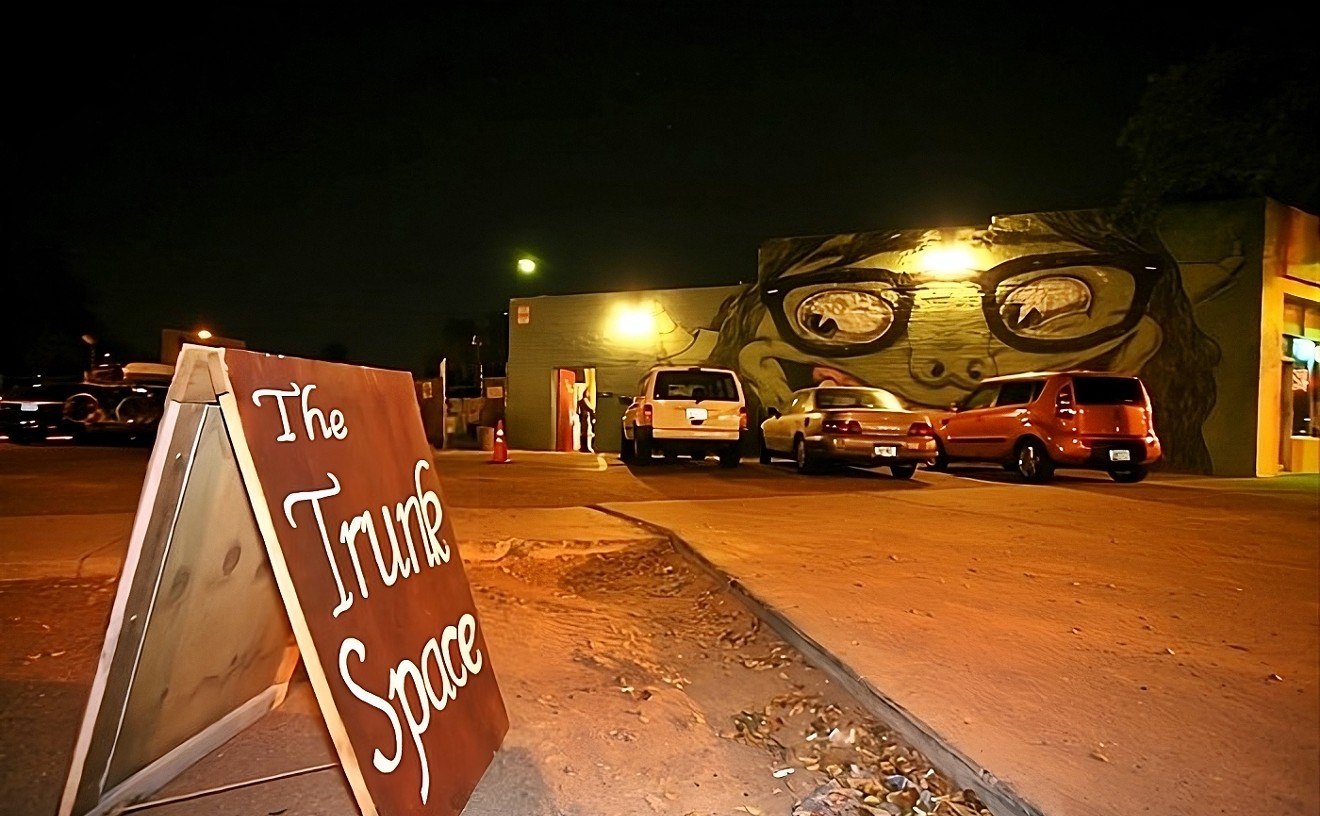A Raisin in the Sun tells the story of fictional Walter Lee Younger, a black man in 1950s Chicago who represents the social transition of black men and women during the middle of the last century. As he grapples with taking his place in American society and as the head of his family, we are watching Walter Lee become a man, an emergence that grinds to a halt again and again throughout this long drama.
In Desert Stages' production of Lorraine Hansberry's play, though, we are mostly watching Joyce Gittoes. It's her portrayal of matriarch Lena Younger that both elevates this production and reflects the work of its other performers in a dimmer light. No matter. Her fellow actors could be juggling flaming chickens; when Gittoes is onstage, even in repose, we're unable to look away from her commanding presence.
That isn't to say that there are no other worthy performances in this production, wedged onto an appropriately cluttered set in Desert Stages' tiny Actors Café. Although he reads many of his lines with a peculiar incredulity, DeJean Brown delivers a consistently childlike and befuddled Walter Lee. His big scene, when he realizes he's let his family down and lost his sister's medical school tuition, is unrestrained and emotional, and his drunken scene in Act One is subtle and amusing. He plays every moment between with a swagger that's right for a man who's living in changing times as the titular head of his household. Chanel Bragg brings irony and nonchalance to the role of Walter Lee's put-upon wife, Ruth — a lighter approach to a part I've seen played more often as resigned and hopeful, but one that's no less effective.
Director Terry Helland allows touches of humor throughout, which makes the story — about what the Younger family will do with the $10,000 check they've just received from the late Mr. Lee's life insurance policy — less of a trifle. Hansberry's play is crammed with themes relevant to '50s black America: the black man's struggle for dominance in a world run by strong women; the disparate identities of the African-American and the American; a woman's "place" in the world; the importance of religion in ethnic culture. It's around these ideas that Hansberry has built dozens of heavy monologues, and it's over these speeches that the rest of Helland's large supporting cast repeatedly trips.
But not Gittoes. It's a pleasure to watch her act with every part of herself the role of an elderly woman who's watching the downfall of her family. The unspoken sadness as she faces another year in a tenement, the quiet camaraderie between herself and her young grandson, and that brilliant speech in Act One about "how different we done become" — all are played with a quiet sadness that makes Gittoes the reason to watch this oft-produced gem one more time.










